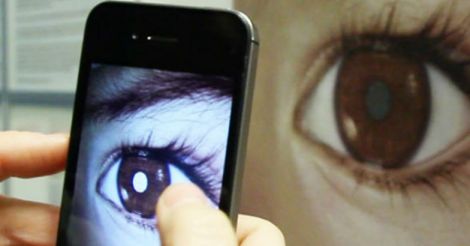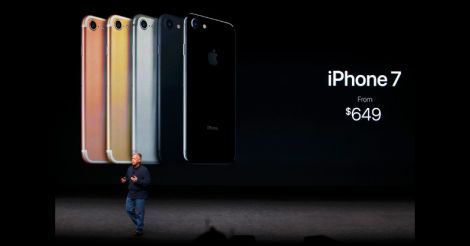New Delhi: With nearly 250 million unique smartphone users in the country and the figure set to reach the 280 million-mark by the end of this year, the Indian smartphone industry - that surpassed the US to become the world's second-largest market by users in 2016 - is set to break new records.
In a year of several firsts - the first modular smartphone G5 from South Korean giant LG and TCL 560 that came equipped with a unique eye-verification feature from Chinese electronics brand TCL Corporation to the delight of Indian users. Leading smartphone makers clearly zeroed in on flagship devices packed with features never heard of.
South Korean smartphone maker Samsung was the first to launch its flagship smartphone Galaxy S7 and its curved-screen companion Galaxy S7 Edge in March at irresistible prices of Rs 48,900 and Rs 56,900, respectively.
The smartphones came with innovations in design, imaging, software functionality and connectivity with a host of other services. The company also introduced the first dual-pixel camera on Galaxy S7 and Galaxy S7 Edge devices.
 Image for representation only. File
Image for representation only. FileIn March, tech giant Apple stunned its rivals by launching a cheaper, smaller yet powerful iPhone SE. Regarded as the cheapest iPhone model so far, the phone came in two variants -- 16GB and 64GB.
Taiwan-based HTC also unveiled its flagship HTC 10 in May that competes with the likes of Samsung Galaxy S7/S7 Edge and iPhone 6s/6s Plus. It offered great multi-tasking abilities.
While the world of technology was going ga-ga over the future of modular smartphones, LG translated the concept into reality with the G5 - its flagship device that upped the ante for other vendors in the customized smartphone market.
The Rs 52,990 G5 features a "slide-out" battery design and dual rear cameras - the only device to feature dual primary cameras which work independent of each other.
Chinese smartphone maker OnePlus in June launched its flagship all-rounder OnePlus 3, with 6GB RAM and a unique dash-charge feature that gives 60 percent of battery life in flat 30 minutes.
July marked the entry of game-changer TCL 560 smartphone by TCL Corporation and is the only device sub-8K that comes with iris-based "EyeVerify" unlock feature.

Ending round-the-clock rumors, the Cupertino-giant Apple in September unveiled its much-anticipated iPhone 7 and iPhone 7 Plus, along with next-generation 'Apple Watch Series 2'.
iPhone 7 features breakthrough new camera systems, the best battery life ever in an iPhone and water and dust resistance. The device also has a dual-core processor with GPU that is up to two times faster.
Set to counter Apple's iOS 10 and intelligent assistant Siri, Google came with Pixel in October - the first phone made by Google with the Google Assistant built right in, bringing together the best of Google's software and world-class hardware.
Other Chinese brands like Xiaomi, Vivo, Oppo also kept the momentum going by bringing high-end specifications in flagship devices. Domestic players such as Micromax and Karbonn also introduced their share of devices in the sub-10K category.
In 2016, users also witnessed many new devices with virtual reality (VR) capabilities, improved optics, powerful processors and longer battery back-up. Smartphones with heavy-duty front cameras (remember Vivo V5?) also arrived every now and then.
Another highlight of the year was "Make in India" announcements from smartphone makers like global Internet technology conglomerate LeEco - a new entrant in India that created quite a ripple with its popular range of "Superphones" like Le 1s Eco, Le 2 and Le Max 2. Other such manufacturing announcements/commitments came from Micromax, Vivo India, Huawei and LG, among others.
Highlights of the Indian smartphone industry in 2016:
* India overtook the US to become the world's second-largest smartphone market by users
* The country touched nearly 250 million unique smartphone users and the figure was set to reach the 280 million-mark by the end of the year
* Several smartphone makers announced they would start manufacturing in India
* The smartphone market in India crossed the 30 million unit shipments milestone for the first time ever in a quarter in third quarter of 2016.
























